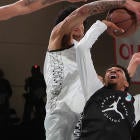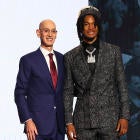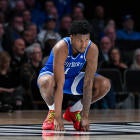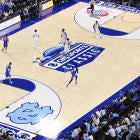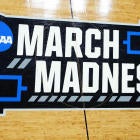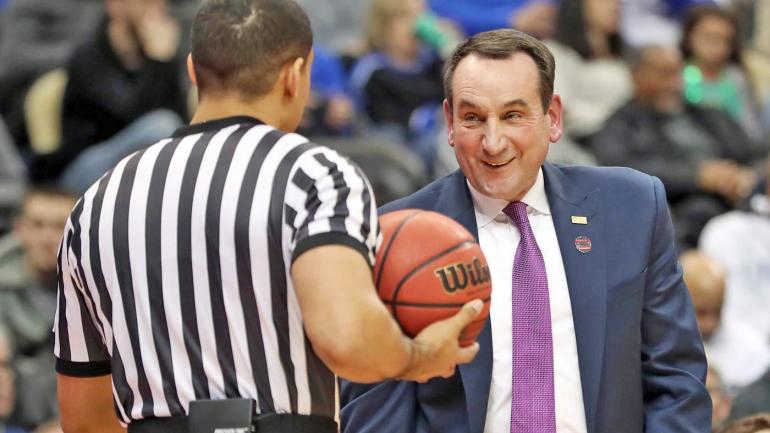
Add Duke coach Mike Krzyzewski to the list of supporters for college athletes getting rights to their name, image and likeness. While addressing reporters at ACC Media Day on Tuesday, Coach K specifically spoke in favor of Senate Bill 206, which California Governor Gavin Newsom signed into law late last month and will allow California-based college athletes to profit off their name, image and likeness beginning in 2023. The Hall of Fame coach said he believes dozens of states will pass similar legislation by end of 2019-20 season.
Krzyzewski said he was "really happy" change was being enacted and added that NIL legislation being passed by individual states was a result of the NCAA lagging on the issue for decades and failing to preemptively address it at a national level.
"We need to stay current with what's happening," Krzyzewski said. "I'm glad it was passed because it pushes the envelope, it pushes the issue. We've had our head in the sand a lot for college. We're not good game planners for the future. We're reactionary. We don't set the pace."
The bill, which says colleges in California cannot punish their athletes for collecting endorsement money, does not allow schools to pay athletes directly but rather makes it illegal for schools to prevent an athlete from earning money by selling the rights to his or her name, image or likeness to outside parties.
Since Newsom officially signed the bill into law, several other nearly a dozen other states have begun to consider and even introduce equivalent legislation. California's groundbreaking law has also sparked a larger push against the NCAA and its status quo regarding amateurism and for college athlete empowerment.
Krzyzewski released an official statement after speaking on the matter, again coming out in favor of NIL rules and laws for college athletes.
"The Fair Pay to Play Act that was recently signed into law in California will likely lead to far-reaching change," Krzyzewski wrote. "We've already seen similar bills introduced in several states. I don't -- and won't -- pretend to understand all the complexities of such a change. However, it is a sign of the times that we in college athletics must continually adapt, albeit in a sensible manner. While we have made significant progress in recent years, we have not always responded to the needs and rights of our players swiftly, and frankly, we're playing catchup after years of stagnant rules."
Krzyzewski went on to express his hope that a plan that prioritizes student-athletes' best interests will soon be put in place at the national level.
"College athletics provides an amazing option for hundreds of thousands of talented men and women who choose to attend institutions across the country," Krzyzewski wrote. "We must adapt to ensure it stays that way."
The NCAA said it would consider "next steps in California" while the organization's members "move forward with ongoing efforts to make adjustments to NCAA name, image and likeness rules that are both realistic in modern society and tied to higher education." The NCAA added, however, that it believes the bill will upend the principles of amateurism and the fair playing field it has tried to create within college athletics.
"As more states consider their own specific legislation related to this topic, it is clear that a patchwork of different laws from different states will make unattainable the goal of providing a fair and level playing field for 1,100 campuses and nearly half a million student-athletes nationwide," the NCAA said in its response to California's SB 206.
Since Newsom's signing, Colorado, Florida, Kentucky, Illinois, Minnesota, Nevada, New York, Pennsylvania, South Carolina, Washington, Maryland, Connecticut and Ohio have all begun to introduce or consider their own NIL legislation.













